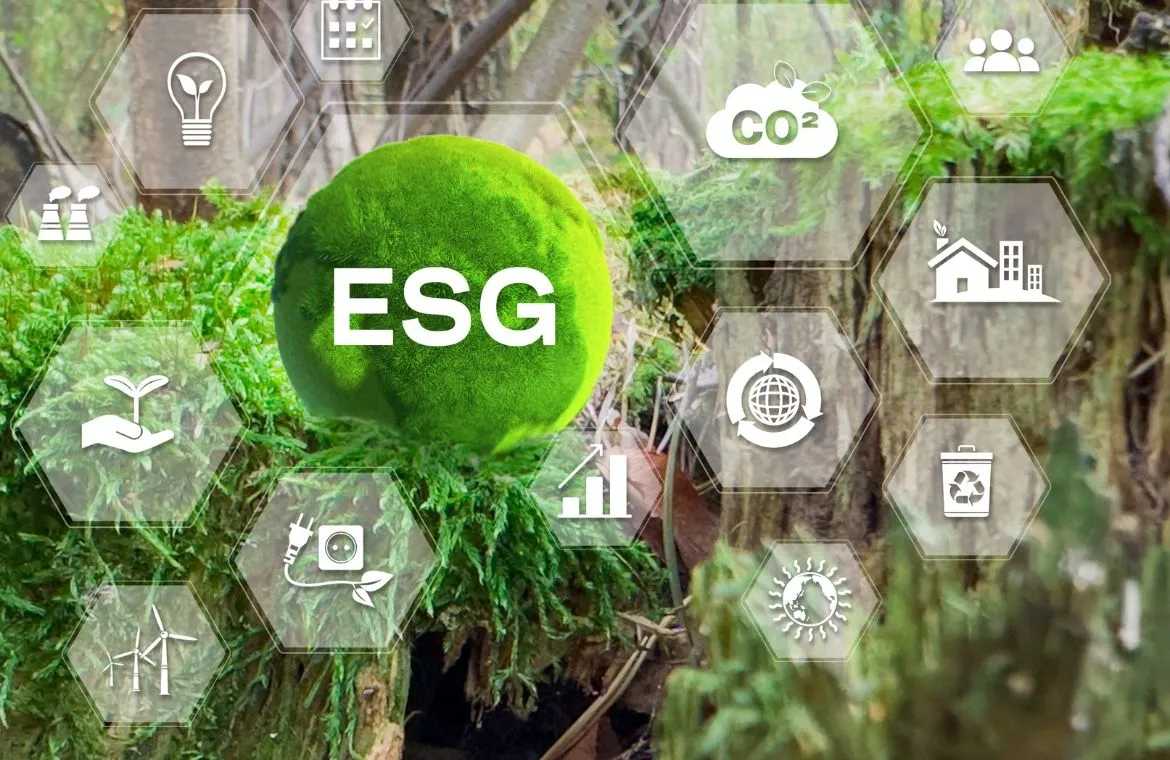ESG Jobs for Professionals

Running a business is no longer just about numbers on a balance sheet. Companies are focusing on environmental, social, and governance factors to make a real impact. By looking beyond profits, organizations can build trust, support communities, and operate responsibly, all while growing sustainably.
For example, The TATA Group has long prioritised social responsibility, sustainability, and ethical governance. From running impactful healthcare and education initiatives to adopting green energy practices in manufacturing, Tata has embedded ESG principles into its core business strategy.
Also Read: What is ESG Reporting? An Inclusive Guide
Why Are Professionals Turning to ESG Careers for Long-Term Growth?
According to the International Energy Agency (IEA), renewable energy jobs are expected to outnumber fossil fuel jobs by 2030, signaling a fundamental shift in the global employment landscape.
With global regulations tightening and demand for specialized sustainability skills on the rise, ESG roles are evolving from niche positions into core pillars of corporate strategy across diverse industries.
India's growing ESG job market
New jobs will emerge in renewable energy, waste management, electric vehicles, sustainable textiles, and green construction. Mumbai, Bengaluru, and Delhi lead the way. Yet smaller cities like Jaipur, Indore, and Visakhapatnam are becoming important centres too.
Companies are investing in ESG talent
“The companies that invest in ESG talent today are not just building better teams, they’re building a better future.” for example , TCS and Mahindra are the best examples for that as so in India.
ESG Job Roles for Professionals
The ESG sector offers many career paths. Each role needs specific skills and gives professionals a chance to make positive changes. Let's look at the key positions that shape this fast-growing field.
1. ESG Analyst
ESG Analysts review companies' environmental, social, and governance performance through data collection and analysis. They research sustainability practices, create performance reports, and give recommendations to stakeholders.
Their work helps spot ESG-related risks and opportunities that regular financial analysis might miss. Success in this role needs financial analysis skills, knowledge of ESG frameworks, and solid research abilities.
2. Sustainability Manager
Sustainability Managers help organisations create and put eco-friendly strategies into action. They watch environmental effects, follow regulations, and create sustainability policies.
These professionals need leadership skills to develop an environment where team members see sustainability as a core value. They raise awareness among stakeholders and create procedures that support company-wide sustainability efforts.
3. ESG Reporting Specialist
ESG Reporting Specialists bring transparency through detailed sustainability disclosures. They create annual environmental and social responsibility reports that line up with frameworks like GRI and SASB.
They also manage ESG ratings platforms, coordinate internal reviews, and track disclosure deadlines. The role needs strong writing, research, and people skills as they cooperate with teams across the company.
4. ESG Consultant / Advisor
ESG Consultants guide organisations through ESG-related opportunities and risks. They review performance, develop strategies that match ESG goals, put initiatives in place, and track results. They help businesses attract investors by improving their ESG performance.
These professionals also help companies understand complex regulations and find growth opportunities that match sustainability goals.
5. ESG Data Scientist
ESG Data Scientists turn complex datasets into practical sustainability insights. They create predictive models for risk assessment and design data visualisations that communicate findings clearly.
These experts connect raw ESG data to strategic decisions. The role needs skills in programming languages like Python and R, plus strong analytical thinking.
6. Corporate Social Responsibility (CSR) Officer
CSR Officers create and carry out strategies that promote ethical business practices. They run social programmes, set up volunteer opportunities, and promote employee participation in sustainability initiatives. They build relationships with non-profits and community groups while sharing CSR activities with stakeholders. CSR Officers make sure companies act responsibly and help their communities.
7. ESG Investment Analyst
ESG Investment Analysts add sustainability factors to investment decisions. They check potential investments against ESG criteria, study sustainability practices, and write detailed reports for stakeholders.
They keep portfolios in line with sustainable and ethical goals. The job needs expertise in financial modelling and ESG scoring methods.
8. Climate Risk & Sustainability Consultant
Climate Risk Consultants focus on how climate changes affect businesses. These experts from firms like EY, KPMG, and Deloitte help organisations measure carbon footprints, plan decarbonization goals, and create transition strategies.
They help companies prepare for climate risks while finding ways to improve their environmental impact.
Emerging ESG Job Trends
The ESG landscape changes faster than ever, creating new career paths beyond traditional sustainability roles. Recent data shows major changes that will shape tomorrow's green economy.
1. Rise of ESG data and analytics roles
Technology reshapes how organisations track ESG performance. Companies especially need professionals who excel at performance analytics and setting standards.
2. Integration of ESG in finance and investment
Financial institutions now use ESG data to make better investment decisions, manage risks, and stay compliant. The ESG market value should reach INR 6750.44 trillion by 2030. Asset owners look for investments that bring both financial returns and positive social change.
3. Cross-functional ESG skills needed
There’s a surge in the demand for skills for ESG professionals' roles which has grown significantly. They must know finance, risk management, and operations instead of focusing only on compliance. Companies value talent that can create organisation-wide sustainability programmes.
Skills Required for ESG Professionals
From measuring environmental impact to implementing governance frameworks, the mantra
“You cannot manage what you cannot measure”
resonates deeply in ESG roles. For professionals aiming to make a tangible impact, upskilling in ESG today is the pathway to staying competitive tomorrow.
1. Technical Skills
ESG data analytics has become vital, and professionals need to master tools like Power BI and Python to visualise sustainability metrics. Major frameworks, GRI, SASB, TCFD, play a key role in accurate reporting.
Specialists should know carbon accounting principles and emissions calculations while staying updated with ESG databases such as Bloomberg ESG and MSCI.
2. Business Skills
Financial knowledge helps professionals understand how ESG efforts impact a company’s performance.
They use materiality assessments to identify key ESG risks and factors based on the industry, location, and stakeholder expectations.
3. Soft Skills
Thriving in the ESG space isn’t just about mastering data or frameworks, it’s about connecting people, ideas, and purpose. Core soft skills like communication, collaboration, critical thinking, problem-solving, adaptability, and stakeholder engagement form the foundation of success in this field.
These skills help professionals translate complex ESG concepts into clear actions, work seamlessly with diverse teams, and inspire meaningful, sustainable change.
How to Start and Grow Your ESG Career?
A successful ESG career demands careful planning and ongoing growth. Professionals who plan their career path systematically move up faster in this competitive field.
Educational paths and certifications
For working professionals, the right education and certifications can be a game-changer in building a successful ESG career. These credentials validate your expertise, demonstrate commitment to sustainability, and make you stand out in a competitive job market.
Transitioning from other industries
Your current position's transferable skills deserve a careful review. Financial professionals can use their analytical skills for ESG investments, while HR specialists might thrive in workplace diversity initiatives. Job advertisements can reveal the ESG-specific skills you need to develop.
Building a portfolio of ESG projects
The ESG job market values candidates with hands-on experience. Environmental non-profits, community sustainability projects, and ESG-focused internships offer great opportunities. These activities provide real-life exposure and show your dedication to potential employers.
Networking and staying updated with ESG trends
Professional ESG networks and industry events create valuable connections. Social media platforms help you follow ESG intellectual influence and join online communities that keep you informed about new trends and opportunities.
Conclusion
The ESG sector is at a turning point with exceptional growth that creates substantial chances for professionals who want purpose-driven careers with competitive pay.
In this article, you've seen how the need for ESG talent keeps growing faster than supply. This creates a clear advantage for those with the right skills.
The future looks bright for aspiring ESG professionals, especially in India where the green economy could create over 7 million jobs by FY28.
So, whether you’re a finance expert, data analyst, or strategist, the message is clear, the world needs professionals who don’t just work for profit, but for purpose.
Frequently Asked Questions
Q1. What essential skills are required for a career in ESG?
Key skills for ESG professionals include data analysis, knowledge of ESG frameworks, financial literacy, risk management, and strong communication abilities. Proficiency in tools like Power BI and Python for data visualisation is also valuable.
Q2. How can I transition into an ESG career from a different industry?
Assess your transferable skills, identify ESG-specific competencies to develop, and expand your knowledge through online courses in sustainability and ethical business practices. Consider volunteering or internships to gain practical experience in ESG-related projects.
Q3. What are the core components of ESG?
ESG stands for Environmental, Social, and Governance. These three pillars form the framework for assessing a company's overall sustainability and ethical impact. Each component covers various factors that influence a company's performance and risk profile.

TalentSprint
TalentSprint is a leading deep-tech education company. It partners with esteemed academic institutions and global corporations to offer advanced learning programs in deep-tech, management, and emerging technologies. Known for its high-impact programs co-created with think tanks and experts, TalentSprint blends academic expertise with practical industry experience.



